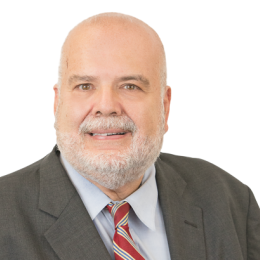Banner artwork by SevenMaps / Shutterstock.com
Cheat Sheet
- McDonald's I extended the fiduciary duty of oversight to corporate officers. Claims were addressed against former Chief People Officer David Fairhurst.
- McDonald's II focused on director liability. It held that the allegations of breach of duty of oversight were insufficient to withstand a Motion to Dismiss, reaffirming the difficulty of pleading such claims against directors.
- The Meta Platforms case involves claims of breach of duty of oversight. Claims were made against officers and directors, including the general counsel, alleging their failure to address sex trafficking issues on social media sites.
- In-house counsel should prioritize the corporation's interests. Be aware of exculpatory provisions, handle books and records demands seriously, and consider insurance coverage for non-officer lawyers named as defendants.
In the first quarter of 2023 we have seen two significant decisions and one new derivative suit filed in Delaware Chancery Court regarding Caremark oversight duties of directors and officers. In this article, we explore the ramifications of these developments for corporations, directors and officers, and company counsel.
McDonald’s I extends fiduciary duty to corporate officers
On January 26, 2023, Vice Chancellor J. Travis Laster of the Delaware Chancery Court issued a lengthy opinion in In Re McDonald’s Corporation Stockholder Derivative Litigation, C.A. No. 2021-0324 (Del. Ch. Jan. 26, 2023) (McDonald’s I).
The decision was most significant because it extended the fiduciary duty of oversight to corporate officers under applicable Delaware law. Originally, through the court’s decision in In re Caremark Int’l Inc. Derivative Litigation, 698 A. 2d 959 (Del. Ch. 1996), that duty was one only imposed on corporate directors.

Caremark claim: a claim for breach of fiduciary duty against directors or officers based on a failure or oversight or intervention despite various "red flags" showing improper conduct.
In re Caremark International Inc. Derivative Litigation, 698 A
McDonald’s I was a shareholder derivative suit brought against company directors, the former CEO, and the former Chief People Officer David Fairhurst. The opinion addressed solely the claims against Fairhurst in deciding a motion to dismiss brought by him.
In short, the oversight claims against him were based upon his failure to manage pervasive sexual harassment issues at the company and the fact that he personally also engaged in such harassment of employees on several occasions. Ultimately, Fairhurst and the former CEO, Stephen J. Easterbrook, were terminated separately in 2019 over the conduct at issue here.
Officers have a duty to monitor “red flags”
McDonald’s I has caused quite a stir in both the areas of corporate governance and the D&O insurance community, as those insurers will ultimately bear the financial brunt of any increased frequency of these oversight claims.
A careful reading of the opinion, however, indicates that it was quite fact-specific and not an altogether surprising result. Indeed, it is not likely that any other officer in the company, save for perhaps the CEO, could have been tagged with Caremark liability for the sexual harassment allegations at issue here.
Fairhurst brought his motion to dismiss essentially on the basis that Caremark duties do not extend to corporate officers. The court made clear that officers owe the same fiduciary duty of oversight as do directors “as to matters within their areas of responsibility.” As such, it makes sense that Fairhurst would owe these oversight duties regarding matters such as sexual harassment, because that was clearly within his area of responsibility as chief people officer of the company. In that sense, an officer’s duty of oversight is more limited than that imposed upon directors.
The court held that officers had a duty to monitor "red flags" within their area of responsibility and report to their superiors when such red flags are noted.
The court held that officers had a duty to monitor “red flags” within their area of responsibility and report to their superiors when such red flags are noted. Interestingly, in this case, Fairhurst’s superior would be the CEO, Easterbrook, who was allegedly also enmeshed in the same harassment scenarios. The court noted that a CEO would have a “company-wide remit” but did not further address Easterbrook’s liability.
Based upon the court’s reasoning, it is unlikely that oversight claims could be sustained against Fairhurst if the area were food safety as in Marchand v. Barnhill, 212 A.3d 805 (Del. 2019), a well-known duty of oversight decision from the Supreme Court of Delaware. That decision focused on “mission critical” areas such as food safety in a company that was an ice cream manufacturer and distributor. No similar mission critical analysis took place in McDonald’s I, but the court instead focused on the “red flags” issues.
The court also noted that liability should only attach to directors or officers in these situations if they acted in bad faith and breached their duty of loyalty to the company. In this case, the court held that Fairhurst’s own acts of sexual harassment constituted bad faith and a breach of the duty of loyalty.
Defense costs could rise
Many commentators, including those in the D&O insurance community, have expressed concern that McDonald’s I may lead to a plethora of employment law claims being “repackaged” by shareholders as Caremark claims and brought in Delaware Chancery. We believe those concerns may not prove to be well-founded because the facts in McDonald’s I were particularly egregious. Ordinarily, these claims would not involve misconduct at the officer level and would be directed solely against the company, which in derivative litigation is only a nominal defendant. Based upon the reasoning of the court, the claims at issue here could likely only withstand dismissal as to an officer such as Fairhurst who had responsibility for human resources and employment matters.

Artwork by eamesBot / Shutterstok.com
While other Delaware courts and commentators have observed how difficult it is for shareholder plaintiffs to successfully plead a Caremark claim, the court here made no reiteration of this supposed truism. That may be because with this decision and earlier decisions in Marchand and In re Boeing Co. Derivative Litig., No. 2019-0907-MTZ, 2021 Del. Ch. LEXIS 197 (Del. Ch. Sep. 7, 2021), successful Caremark claims may no longer be such rare occurrences.
As far as D&O insurer concerns about possible increased litigation frequency or opening floodgates in this area, adding officers as potential defendants in these types of claims may have a significant impact on insurers’ defense expense exposure. It is duly noted that in McDonald’s I separate counsel represented Fairhurst and Easterbrook in addition to the counsel that represented the director defendants. That makes for three defense firms, where normally there would only be a single firm representing the directors and one representing the nominal defendant corporation. In derivative litigation this can result in significantly more (perhaps triple the amount) defense costs liability to the insurer.
Adding officers as potential defendants in these types of claims may have a significant impact on insurer's defense expense exposure.
McDonald’s II see the business judgment rule stand up to scrutiny
On March 1, 2023, Vice Chancellor Laster issued another lengthy opinion in In Re McDonald’s Corporation Stockholder Derivative Litigation, C.A. No. 2021-0324 (Del. Ch. Mar.1, 2023) (McDonald’s II).
McDonald’s I addressed Caremark liability for an officer and was not addressed in McDonald’s II and thus McDonald’s I remains good Delaware law. McDonald’s II addressed the issue of director liability for the same type of claims.
In McDonald’s II, the court held that the pled allegations of breach of the duty of oversight against the directors were insufficient to withstand a motion to dismiss. The court also noted that this type of “red flag” oversight claim did not warrant the “mission critical” analysis undertaken in the Marchand and Boeing decisions.
The business judgment rule provided directors with a solid defense in their decision-making.
Indeed, in McDonald’s II, the court reached back before Caremark to the 1963 Delaware Supreme Court decision in Graham v. Allis-Chalmers Manufacturing Co.,188 A. 2d 125 (Del. 1963) and exonerated the directors from liability under the red flags analysis set forth in that decision. In dismissing the claims against the directors based upon the same underlying facts that sustained the claims against the officer in McDonald’s I, the court reinforced the common wisdom, somewhat eroded by Marchand and Boeing, that it is difficult to successfully plead a breach of the duty of oversight claim at least against directors.
Applying a red flags analysis, the court nonetheless held that the business judgment rule provided directors with a solid defense in their decision-making. Thus, despite the fact that the McDonald’s board should have been aware of numerous red flags, the business judgment rule protected the decisions they made in dealing with both Fairhurst and Easterbrook. While there may have been in the view of some less than an ideal response to the sexual harassment problems within the company, it was nonetheless a reasoned response protected by the business judgment of the board.
In a real sense, McDonald’s II relevels the playing field so that successful Caremark claims against boards may continue to be rare events.
GCs can be named as defendants
On March 20, 2023, shareholders in Meta Platforms, Inc. filed a detail derivative complaint in Delaware Chancery in Employees’ Retirement System of the State of Rhode Island, et al. vs. Mark Zuckerberg, et al., C.A. No. 2023-0304 (Del. Ch. Mar. 20, 2023) (Meta). Interestingly, this suit is also before Vice Chancellor Laster.

It is the latest breach of the duty of oversight claim and names both officers and directors of the company as defendants. In essence, the allegations are that Facebook and the other social media sites hosted by the company were being used to facilitate sex and other human trafficking. It is alleged the board and executive officers blatantly ignored the problem and failed to act. Among the officer defendants is Meta’s general counsel.
Although it would appear that the plaintiffs could not know that they would draw Vice Chancellor Laster to preside over this case, the pleading appears to address numerous concerns he set forth in his decisions in McDonald’s I and McDonald’s II.
As expected, the defendants filed motions to dismiss. On May 10, 2023, in an unwritten ruling from the bench, the vice chancellor denied the motions to dismiss, rejecting defense arguments that the complaint should be dismissed because the plaintiffs did not first demand that the board as a whole act against certain officers and directors. Under Delaware law, shareholders must make such a demand or demonstrate that doing so would be futile because a majority of directors were self-interested, lacked independence, or faced a substantial likelihood of liability.
The vice chancellor noted that he was required to accept the allegations in the complaint, which he described as “encyclopedic and specific” as true for purposes of ruling on the motion. Given that it is an unwritten ruling, this has little to no precedential value. However, the vice chancellor, in delivering the ruling, gave some indication of how he viewed the severity of the allegations made.
"[The Complaint] tells a story of directors who were on notice of the law breaking, and who either affirmatively went along with it or consciously disregarded it. What we don't have is a little lawbreaking, what we don't have is isolated lawbreaking, what we don't have are immaterial violations... This is a case involving alleged wrongdoing on a truly colossal scale."
Vice Chancellor Laster
It remains to be seen what may happen vis further motion practice or settlement of the litigation.
What are the takeaways for in-house counsel?
1. Remember your client is the corporation
The first caveat for company counsel is not to lose sight of who your client is. Simply put, your one and only client is the corporation. It is not the CEO or any other officer or employee, and it is not the board of directors or any individual director. Counsel becomes conflicted when they treat an individual or group of individuals other than the company as a client.
2. Corporate bylaws may protect directors
Second, counsel must be cognizant of any provisions in the company’s charter or by-laws that may exculpate directors from liability in certain situations. Typically, these exculpatory provisions do not extend to officers. In McDonald’s II, the vice chancellor took note of such a provision as another reason to support a dismissal.
3. Consider insurance for non-officers
Also, these derivative suits are often preceded by a books and records demand under Delaware Corporation Code §220 or similar statute where the state of incorporation is other than Delaware. In Meta, plaintiffs have alleged that the company failed to make a complete production of records in response to the §220 demand. While we do not have the benefit of seeing the company’s defense at this point, it is important that counsel take these demands seriously and not be cavalier in their response. §220 demands are not always covered under D&O policies, so consideration must be given to securing an insurance broker’s advice as to whether such coverage can be added to the policy if not already there.
Finally, it should not be lost on counsel that Meta’s general counsel is a named defendant in this suit. As such, McDonald’s I may be quite pertinent to potential liability as a corporate officer. As a corporate officer, the general counsel should enjoy coverage under the company’s D&O policy. However, other non-officer lawyers in the legal department would necessarily have insurance coverage if they were named as defendants in a lawsuit. Although it is rare to have such non-officers included as defendants, consideration should be given to procuring an insurance policy specifically designed to cover in-house lawyers for claims.





